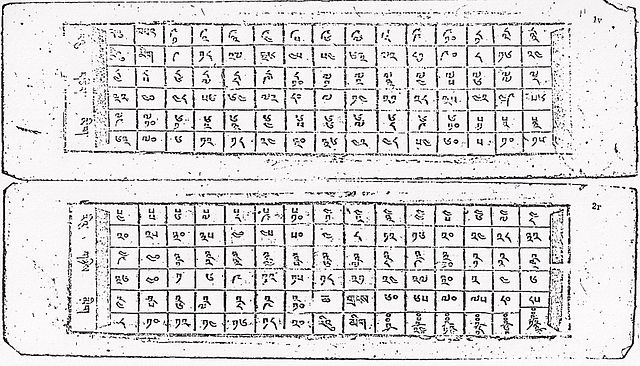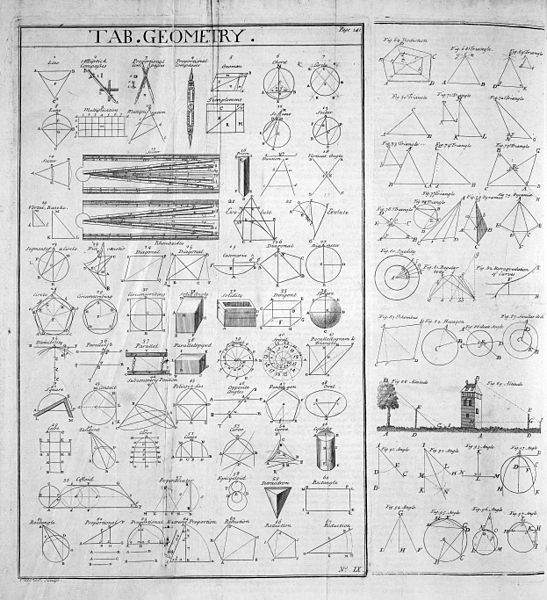Numerical cognition
Find a list of topics we have worked on and are working on. (Note that all illustrations on this page are somehow related to our projects. Find some more information about those illustrations by clicking on the links below the pictures, and find the relation for yourself.)
An alternative model for the Analogue Number System
Symbolic and non-symbolic numbers are thought to be processed by an evolutionary ancient, simple representation, working according to Weber's law. This Analogue Number System (ANS) is thought to be the very base of number understanding, and hundreds of academic works support its existence and describe its properties.
Still, it is possible that an entirely different system is responsible for symbolic number processing. We propose an alternative account and argue that all known phenomena formerly attributed to the ANS can be explained by this alternative model. Also, all of our tests contrasting the two models reveal phenomena that the ANS cannot explain.
Read more
Does the Give a number task measure number knowledge appropriately?
Give a number task is maybe the most important task to measure whether preschoolers understand exact symbolic numbers. We found that the current version of the Give a Number task cannot measure some critical properties of symbolic number understanding. We propose a modified version of the task to get more reliable and detailed data.
Read more
The role of the ANS in children
The Approximate Number System (ANS) is assumed to account for several phenomena not only in adults but also in children. Here, we investigate a few key properties of this assumed role.
Read more
Do preschoolers understand zero?
Zero is believed to be hard to understand, and it is a relatively late concept in the history of mathematics. Former studies have investigated whether preschoolers can handle zero, and their results are inconclusive. We tried to find the cause of these contradictions and found that preschoolers can handle zero, but they are not sure if it is a number. These results have both theoretical and educational consequences.
Read more
Measuring the Approximate Number System
Some correlational works measuring the Approximate Number System sensitivity with the distance/ratio effect slope may be biased. Find a tool with which you can estimate which works may be affected.
Read more
The role of number notations in numerical processing
What if we used Roman numbers for calculations? Most people would agree that Roman numbers are too complicated for calculations. In fact, our experiments revealed that in specific cases, sign-value numbers (like Roman numbers) are easier to use than place-value numbers (like Indo-Arabic numbers). This number notation effect might reflect an object-based number representation.
Read more
Quantifying objects with subitizing
Enumerating a small set of objects is very fast. Still, it is debated what mental system is responsible for this fast enumeration. We argue here that fast enumeration is sensitive to the arrangement of the set, consequently, fast enumeration of objects is actually is the detection of the pattern the objects of the set form.
Read more
Negative numbers
How are negative numbers processed? Are they represented on a continuous "mental number line" along with the positive numbers? Our experiments suggest that negative numbers are handled as a special "version" of positive numbers instead of a continuation of positive numbers in the "small" direction.
Read more
Numerical abilities in Williams syndrome
It was already known that mathematical abilities are impaired in Williams Syndrome. Looking closer at this impairment, we found a surprising dissociation. While a typical person living with Williams Syndrome can easily tell what 6x8 is, they have a problem deciding whether 9 or 2 is the bigger.
Read more
Numerical Cognition Methods Directory
The Numerical Cognition Methods Directory is a collection of methods in numerical cognition and the peer evaluation of those methods. It helps to find and compare various methods for paradigms, stimulus creation, analyses, and so on.
Read more
Methods in Numerical Cognition Workshop
Researchers working in the field of numerical cognition often have a hard time finding the ideal methods that fit the research aim best and also please the reviewers. Some methods are less known, some of them are debated, and the consequences of some methods are not studied yet. For example, how should the subitizing range be calculated, how should the visual features of non-symbolic stimuli be controlled, and how should the counting knowledge of preschoolers be measured?
Read more










